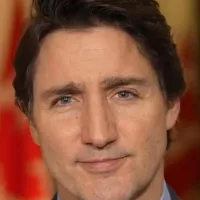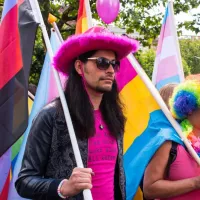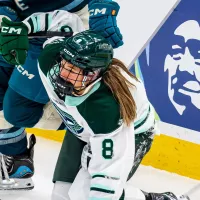LGBT, or LGBTQ+, is an evolving acronym encompassing various marginalized sexual and gender identities beyond simply lesbian, gay, bisexual, and transgender. It includes individuals who are non-heterosexual, non-heteroromantic, or non-cisgender. Variations like LGBTQIA+ and 2SLGBTQ+ further expand inclusivity. While not universally agreed upon, it serves as an umbrella term since the late 1980s, reflecting the diverse experiences within the community.
1969: Post-Stonewall Exclusion
In 1969, following the Stonewall riots, some gays and lesbians became less accepting of bisexual and transgender individuals. Critics argued that transgender people were perpetuating stereotypes and bisexuals were not fully honest about their identities. This period marked a time of internal conflict within the community as they struggled to develop their own identities and align with other gender and sexuality-based groups.
1970: Dissolution of Daughters of Bilitis
In 1970, the Daughters of Bilitis, a pioneering lesbian organization founded by Del Martin and Phyllis Lyon, disbanded due to internal disputes over whether their primary focus should be on feminism or gay rights. This reflects the broader struggle within the lesbian community about prioritizing equality and addressing perceived patriarchal structures.
1988: Adoption of LGBT Initialism
Starting in 1988, activists in the United States began using the initialism LGBT. This change aimed to bring equal respect to gay, lesbian, bisexual, and transgender individuals and served as a positive symbol of inclusion despite ongoing controversies regarding the acceptance of different member groups.
1996: Critique of LGBT Grouping in 'Anti-Gay'
In 1996, the book 'Anti-Gay,' edited by Mark Simpson, criticized the concept of a 'one-size-fits-all' LGBT identity. The collection of essays argued that grouping together people with non-heterosexual orientations perpetuates stereotypes and suppresses individuality.
1999: GLBT Historical Society Renaming
In 1999, the GLBT Historical Society adopted its new name to reflect the evolving recognition and inclusion within the LGBT community. This change was part of broader efforts during the 1990s to ensure equal respect and representation for gay, lesbian, bisexual, and transgender individuals.
2000: Coining of MSGI and GSRM Terms
In 2000, the term 'minority sexual and gender identities' (MSGI) was coined to explicitly include all people who are not cisgender and heterosexual. Another term, 'gender, sexual, and romantic minorities' (GSRM), aimed to be more inclusive of minority romantic orientations and polyamory, but neither term has been widely adopted.
2009: Candis Cayne's Statement on LGBT Community
In 2009, transgender actress Candis Cayne described the LGBT community as 'the last great minority,' highlighting the ongoing harassment and discrimination faced by its members. Her statement underscored the challenges of being openly LGBT in society.
2010: Development of MVPFAFF Term
In 2010, Phylesha Brown-Acton developed the term MVPFAFF at the Asia Pacific Games Human Rights Conference. This abbreviation represents Māhū, Vakasalewa, Palopa, Fa'afafine, Akava'ine, Fakaleitī (Leiti), and Fakafifine, referring to the rainbow Pacific Islander community, who may or may not identify with the LGBT initialism.
2014: Julie Bindel's BBC Article on LGBT Initialisms
In 2014, Julie Bindel questioned in the BBC News Magazine whether various gender groupings under the LGBT umbrella share the same issues, values, and goals. She suggested that it might be time for these alliances to either reform or go their separate ways.
2015: Inclusion of Asexuality and Aromanticism
Around 2015, asexuality and aromanticism began gaining wider recognition and were included in the expanded initialism LGBTQIA. The letter 'A' stands for asexual, aromantic, and sometimes agender, commonly grouped together as a-spec.
2015: Drop the T Campaign
In 2015, the slogan 'Drop the T' emerged, encouraging LGBT organizations to stop supporting transgender people. Advocates claimed that sexual orientation (LGB) does not share similarities with gender identity (T). The campaign was widely condemned by many LGBT groups as transphobic.
2016: GLAAD's Media Reference Guide Update
In 2016, GLAAD's Media Reference Guide recommended the use of LGBTQ as the preferred initialism. This change aimed to be more inclusive of younger members of the community who embrace the term queer as a self-descriptor, despite some older members viewing it as derogatory.
2018: Queer as an Umbrella Term
In 2018, a U.S. study found that about 1 in 5 LGBTQ people identified as 'queer.' While the term gained popularity as an umbrella term for sexual and gender minorities, it remained controversial, especially among older LGBT individuals who found it offensive due to its historical usage as a slur.
2018: Decriminalization of Homosexuality in India
In 2018, the Constitutional Bench of the Supreme Court of India decriminalized homosexuality in the landmark case of Navtej Singh Johar v. Union of India. This decision marked a significant step forward for LGBT rights in India.
July 2023: Canadian Government Adopts 2SLGBTQI+
In July 2023, the Government of Canada officially adopted the term 2SLGBTQI+. This change aimed to be more inclusive, especially of two-spirit indigenous peoples. However, Prime Minister Justin Trudeau faced criticism for using the complex initialism.
Mentioned in this timeline

Justin Trudeau served as the rd Prime Minister of Canada...
India officially the Republic of India is a South Asian...
BBC News a division of the British Broadcasting Corporation is...

News encompasses information about current events disseminated through various media...

Polyamory is the practice of having multiple romantic relationships with...
Canada is a North American country the second largest in...
Trending

20 minutes ago Jannik Sinner's highlights, upcoming match against Jakub Mensik and ATP Doha analysis.

21 minutes ago Haley Winn's brothers gain viral fame supporting her at the Olympics with unique outfits.

21 minutes ago Olga Mikutina to represent Austria in Figure Skating at 2026 Olympics.

22 minutes ago Lara Gutmann: Snowboardcross Prospect, Haemmerle's Olympic Victory, and Team USA's Figure Skating Hopes

1 hour ago Kimmy Repond faced setbacks but realized her Olympic dream after an injury.

1 hour ago Olympic Victories and Near Misses: Grondin's Close Call and Haemmerle's Snowboard Triumph
Popular

Jesse Jackson is an American civil rights activist politician and...
Randall Adam Fine is an American politician a Republican who...

Pam Bondi is an American attorney lobbyist and politician currently...

Barack Obama the th U S President - was the...

Ken Paxton is an American politician and lawyer serving as...

Bernie Sanders is a prominent American politician currently serving as...